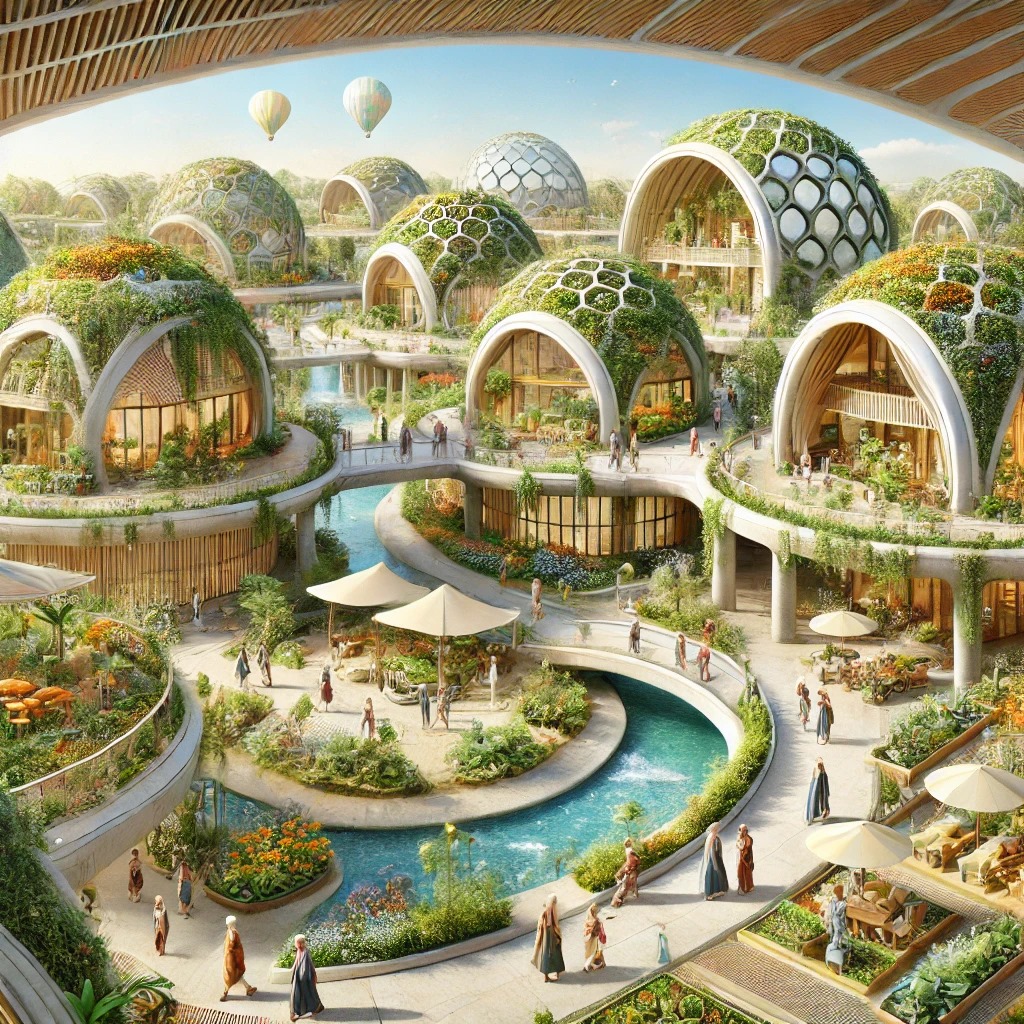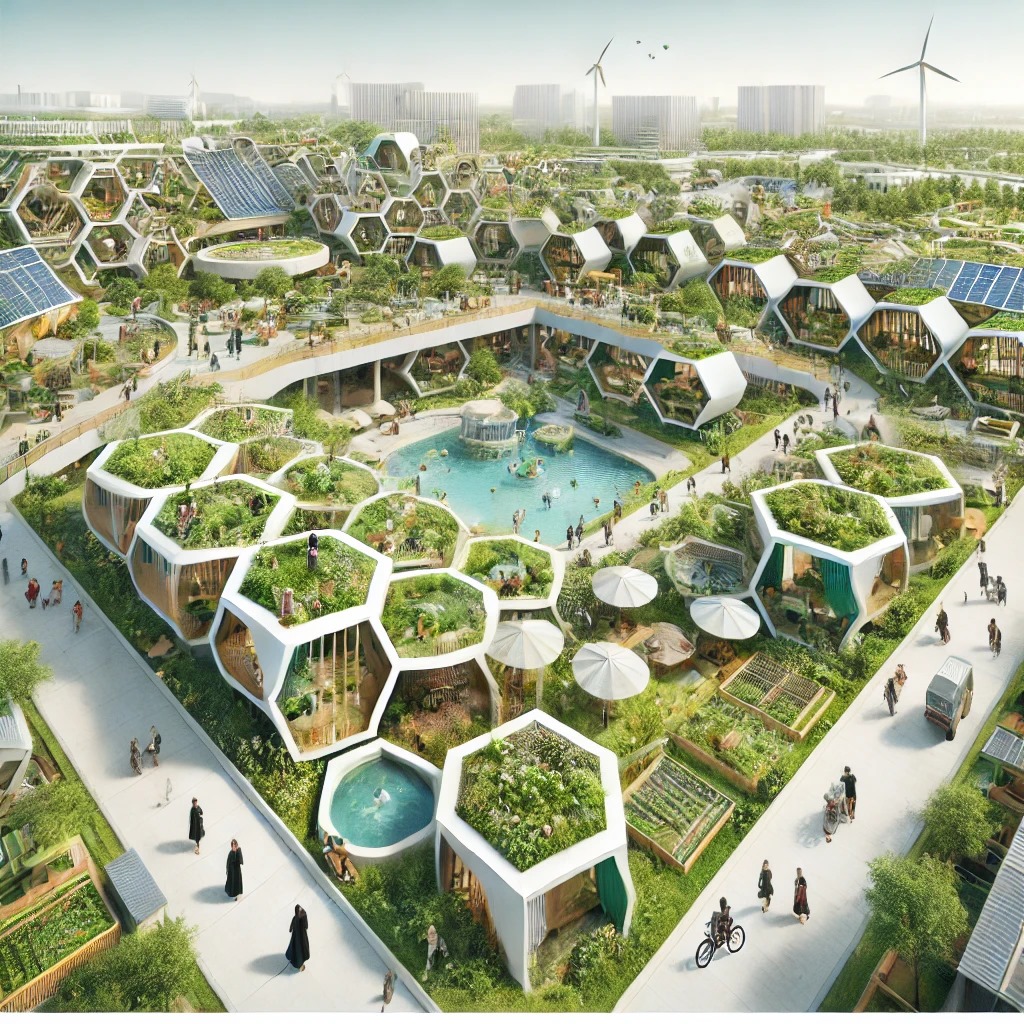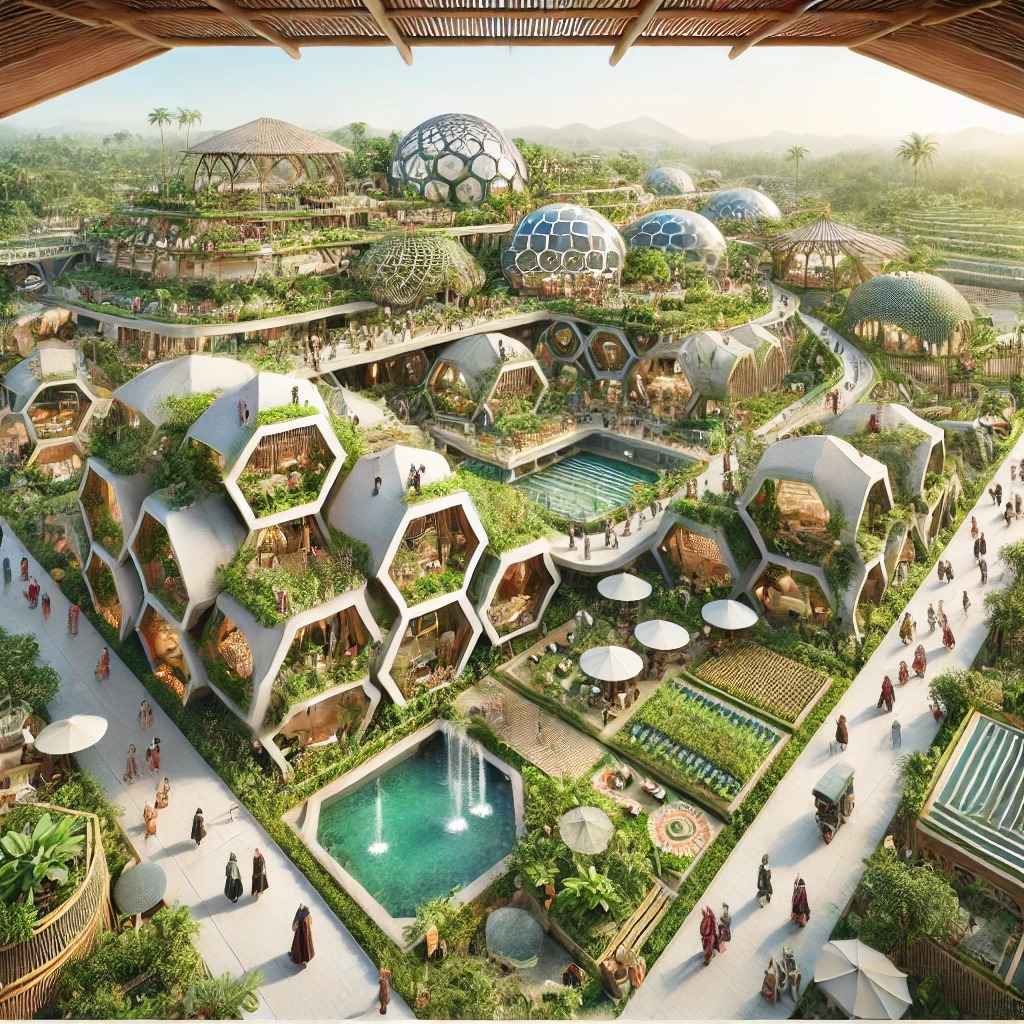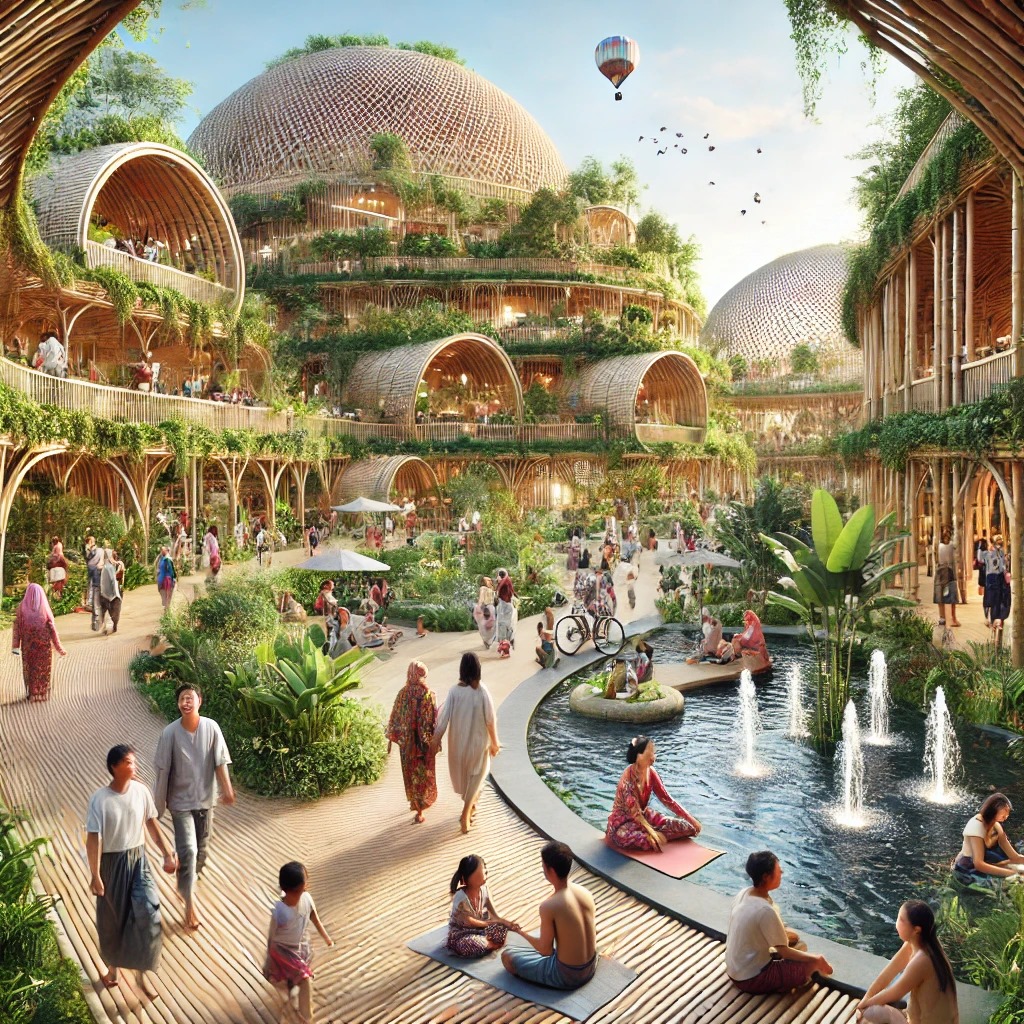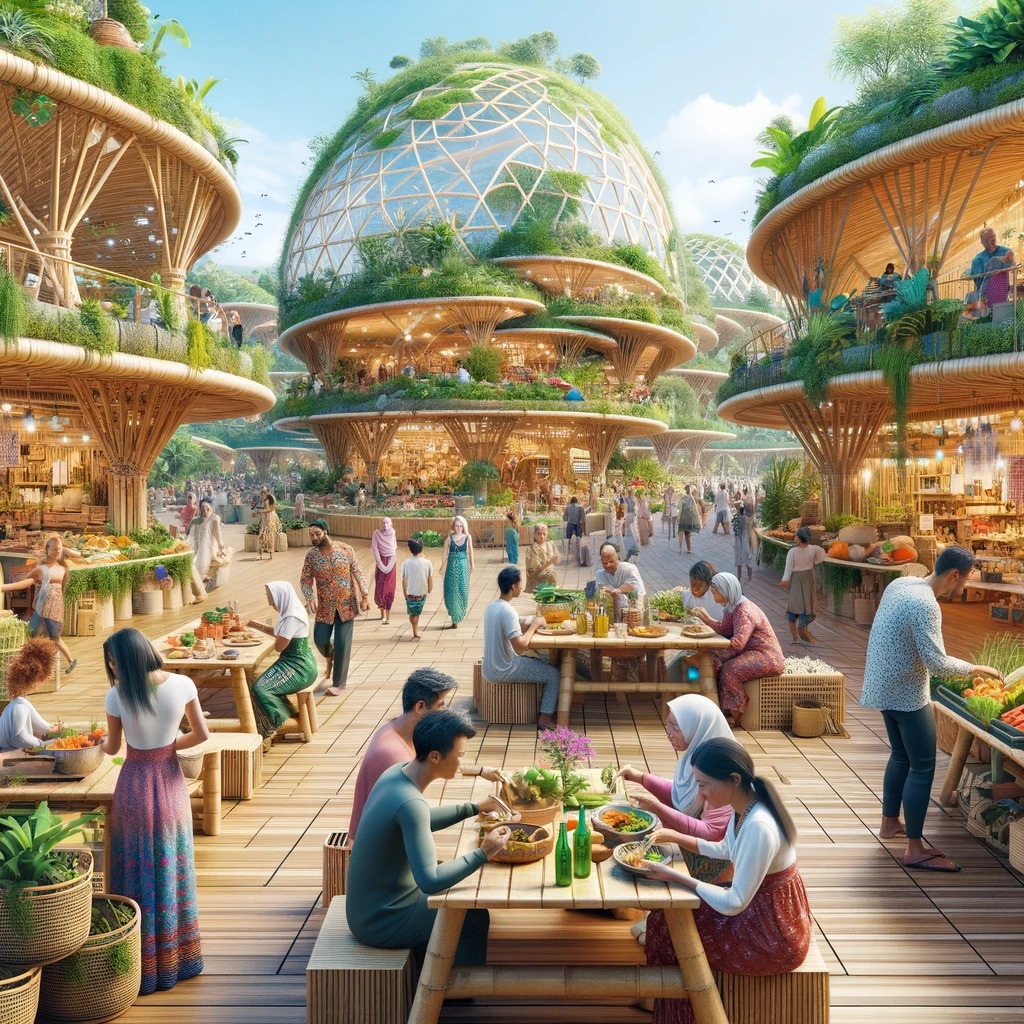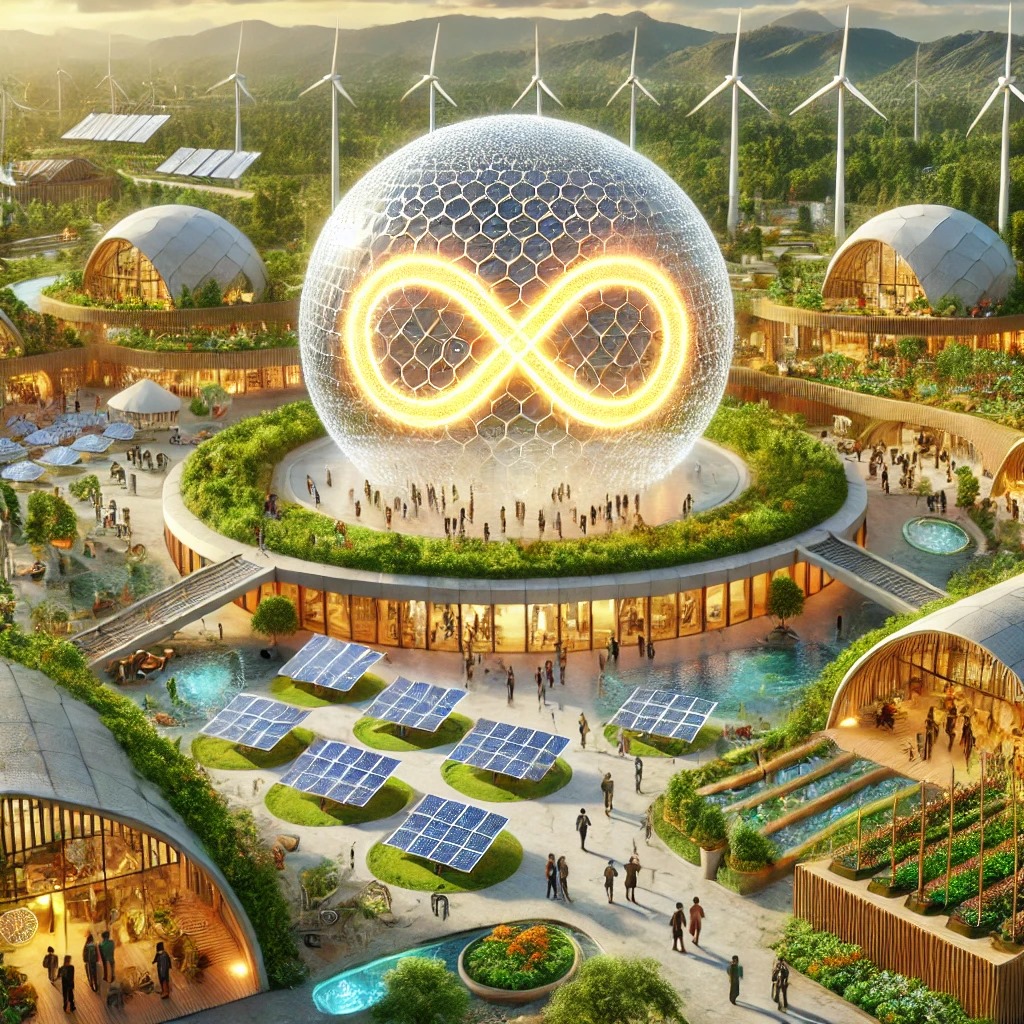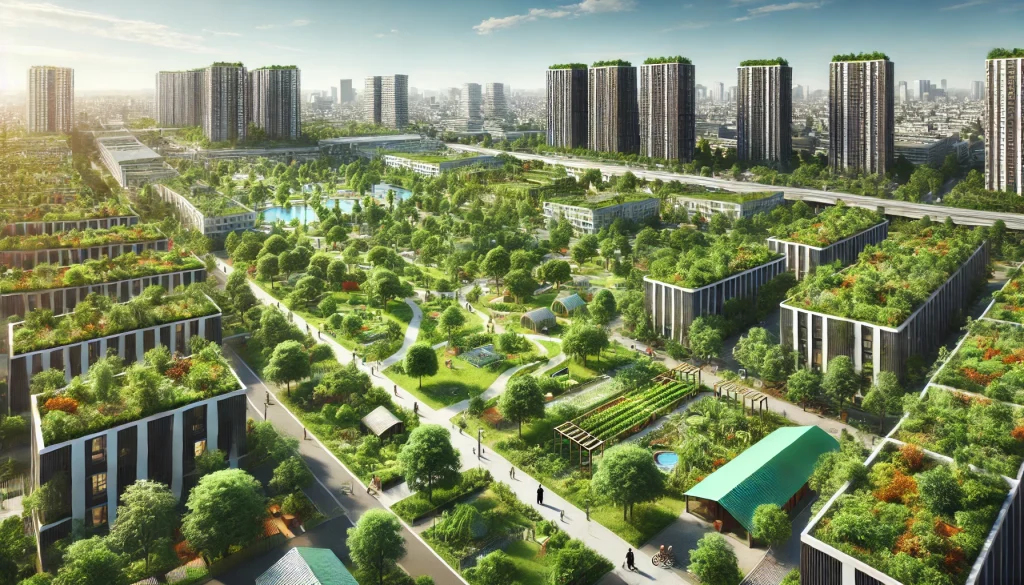Circular Neighbourhood Projects
The Circular Neighbourhood Projects initiative aims to create self-sustaining communities that prioritize waste reduction, resource efficiency, and environmental harmony. By applying the principles of a circular economy, these neighborhoods are designed to minimize waste and promote the reuse, repair, and recycling of materials.
Key components include:
- Zero-Waste Infrastructure: Implementing waste segregation systems, composting units, and recycling facilities to achieve minimal landfill contributions.
- Circular Resource Systems: Encouraging the reuse of materials through repair hubs, thrift stores, and material sharing platforms.
- Eco-Friendly Construction: Using recycled and renewable materials in construction, ensuring buildings are energy-efficient and sustainable.
- Urban Farming and Food Recycling: Supporting community gardens and urban farms powered by compost made from food waste, creating a local and sustainable food system.
- Green Transportation: Promoting walking, cycling, and electric vehicles through shared mobility programs and accessible pathways.
- Community Engagement: Educating residents on circular living practices through workshops, events, and collaborative activities.
By fostering collaboration and innovation, the Circular Neighbourhood Projects aim to transform urban living into a regenerative, environmentally friendly model that benefits both people and the planet.
